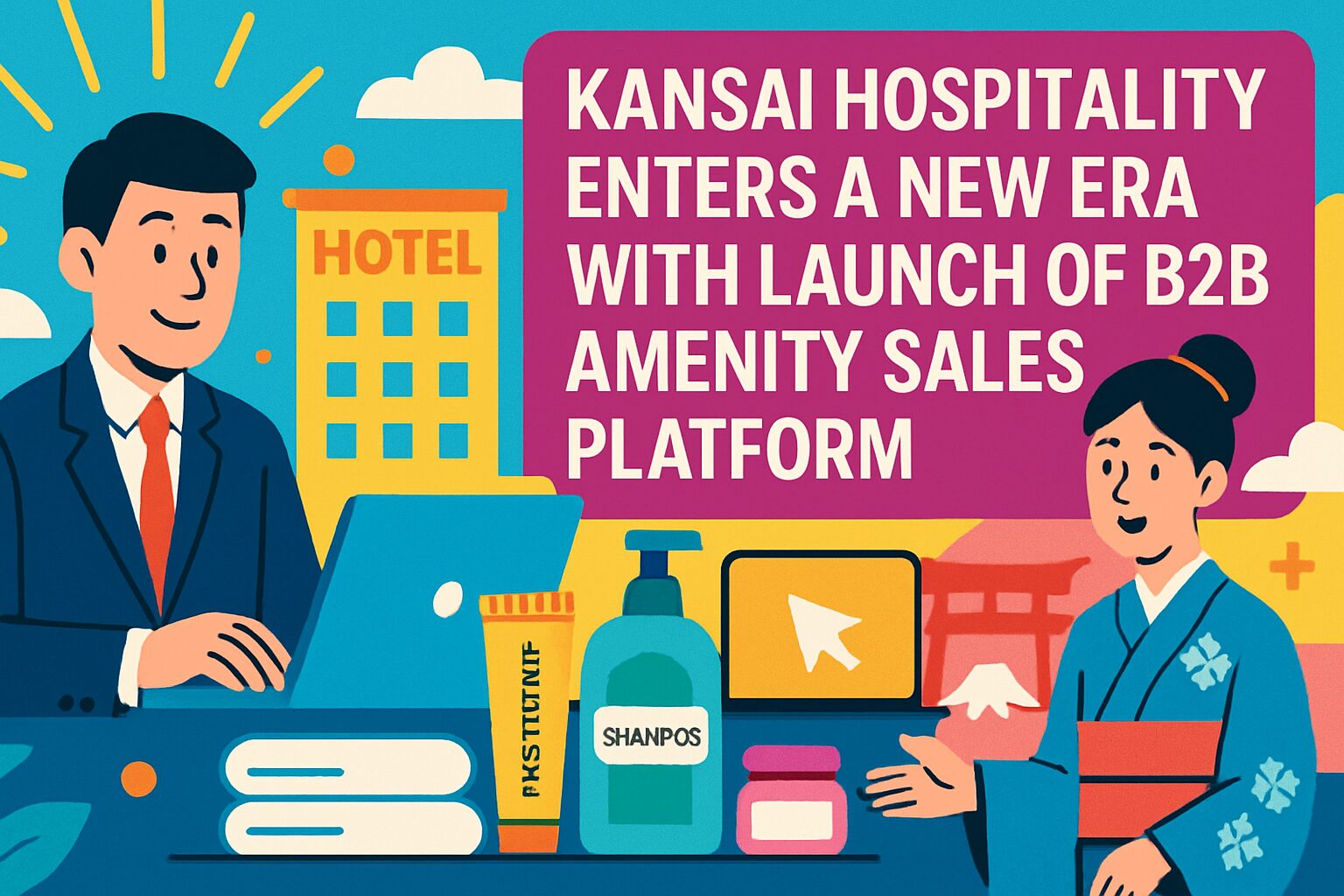A new business-to-business (B2B) online platform dedicated to the sale and procurement of hotel amenities has been launched, initially targeting hotels, traditional ryokans, and leisure facilities throughout the Kansai region. This move signals a significant shift in how the hospitality industry approaches guest services, driven by new environmental regulations, post-pandemic economic pressures, and evolving consumer expectations.
Background: A Necessary Evolution in Japanese Hospitality
For decades, Japan’s hospitality industry has been renowned for its comprehensive and complimentary amenities. From toothbrushes and razors to hairbrushes and cotton swabs, guests have come to expect a full suite of personal care items provided free of charge. This model was a hallmark of Japanese omotenashi (hospitality) and was sustained by a booming inbound tourism market that saw a record 31.88 million visitors in 2019.
However, the landscape has changed dramatically. The industry is now navigating two major challenges:
- Economic Recovery: The COVID-19 pandemic forced operators to scrutinize every expense. The cost of providing a wide array of free amenities to every guest has become a significant financial burden for establishments looking to improve profitability.
- Environmental Responsibility: In April 2022, Japan’s “Plastic Resource Circulation Act” came into effect. This law obliges businesses, including hotels, to take specific measures to reduce single-use plastic waste. Hotels are now required to either charge for plastic amenities like toothbrushes and combs or switch to environmentally friendly alternatives, fundamentally challenging the traditional “free-for-all” model.
This new platform enters the market as a direct solution to these pressing issues.
How the New Amenity Platform Works
The platform functions as a centralized online marketplace where accommodation providers can browse and purchase a wide variety of amenities from multiple suppliers. This model offers several key advantages over traditional procurement methods:
Streamlined and Cost-Effective Purchasing
Instead of managing relationships with numerous individual suppliers, hotels can consolidate their purchasing through a single interface. This efficiency is expected to lead to significant cost savings by allowing for bulk purchasing, competitive pricing, and reduced administrative overhead.
A Focus on Sustainability and Choice
A major feature of the platform is its curated selection of sustainable and eco-friendly products. This includes amenities made from non-plastic materials like bamboo or recycled paper, as well as refillable dispensers for shampoo and soap. This directly helps hotels comply with the new plastics law and appeal to the growing segment of environmentally conscious travelers.
Opportunities for Personalization and Upselling
The platform enables hotels to move beyond a one-size-fits-all approach. They can offer a basic, compliant set of amenities and use the platform to source premium, local, or unique products. These could be offered to guests as an optional upgrade or sold in-room, creating a new revenue stream from what was once purely a cost center. For example, a ryokan in Kyoto could source and sell artisanal soaps made by a local craftsman.
Predicted Impact and Future Outlook for Kansai Tourism
The launch of this platform in the Kansai region is poised to have a ripple effect across the local tourism industry, especially with the Osaka-Kansai Expo 2025 on the horizon.
- Accelerated Shift to Sustainable Tourism: By making eco-friendly options more accessible and affordable, the platform will accelerate the industry’s transition towards sustainability. This will enhance the reputation of Kansai as a modern, responsible travel destination.
- Enhanced Guest Experience: While some may lament the end of universally free amenities, the change presents an opportunity for a more personalized and higher-quality experience. Guests will have more choice, with the option to select products that better suit their preferences, from organic toiletries to locally made goods.
- Strengthening Local Economies: The platform has the potential to feature and promote products from small and medium-sized businesses within the Kansai region. This would create a symbiotic relationship, allowing local artisans and manufacturers to reach a large market while enabling hotels to offer unique, region-specific products that enrich the visitor experience.
In conclusion, this new amenity sales platform is more than just a procurement tool; it is a catalyst for change. It represents a strategic response to the economic and regulatory pressures facing Japan’s hospitality sector, paving the way for a more sustainable, efficient, and personalized future for travel in Kansai and beyond.








